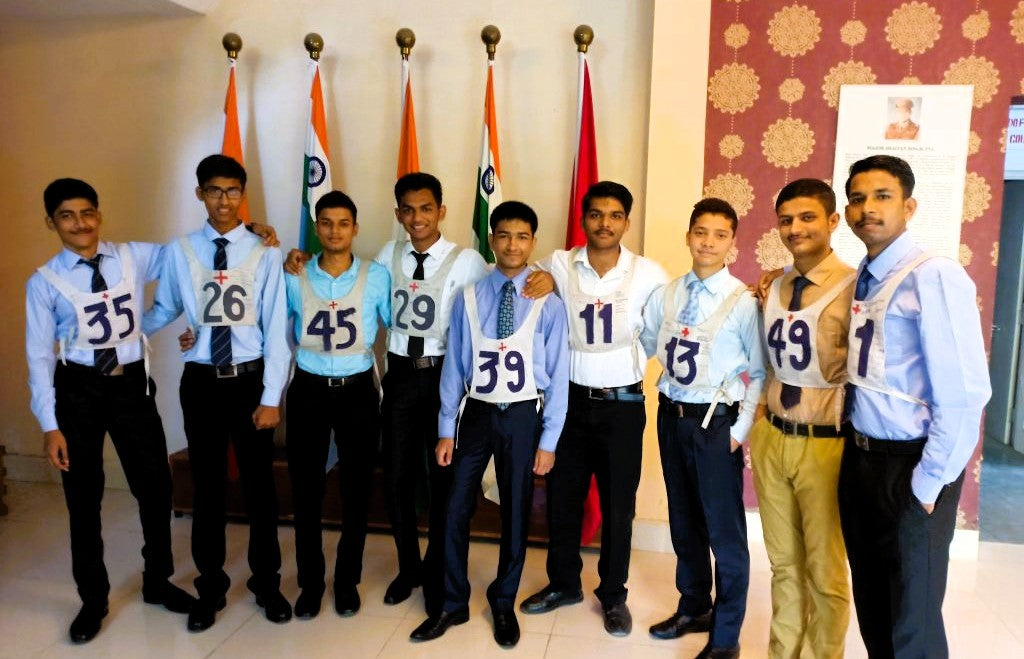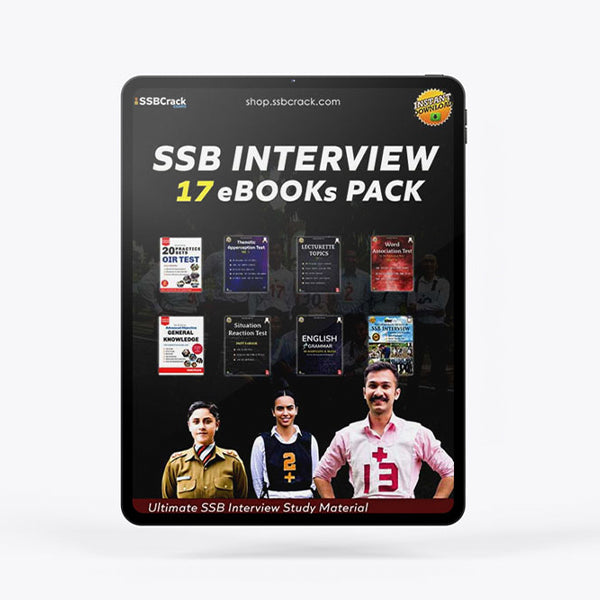Situation Reaction Test: 500 SRT Problems [FREE PDF]

Introduction to Situation Reaction Tests
The Situation Reaction Test (SRT) forms a critical component of the psychological assessment conducted by the Services Selection Board (SSB) for candidates aspiring to join the Indian Defence Forces. Whether you're preparing for AFCAT, UPSC NDA, or other defence examinations, mastering the SRT can significantly enhance your chances of selection.
SRT evaluates a candidate's natural responses to various everyday situations, providing insights into their decision-making abilities, maturity level, and officer-like qualities (OLQs). Unlike other tests that require theoretical knowledge, SRT demands practical intelligence and common sense to solve real-life problems effectively.
What is the Situation Reaction Test?
The Situation Reaction Test presents candidates with a booklet containing 60 situational scenarios to which they must provide appropriate responses. These situations range from emergencies and accidents to moral dilemmas and leadership challenges. The test assesses:
- Maturity and emotional intelligence
- Quick thinking and decision-making abilities
- Problem-solving approach
- Presence of mind
- Leadership potential
- Practical reasoning abilities
SRT Test Procedure
During the SSB interview process, the SRT follows other psychological tests like TAT (Thematic Apperception Test) and WAT (Word Association Test). Here's what to expect:
- You'll receive a booklet with 60 situations
- Time allotted: 30 minutes (approximately 30 seconds per situation)
- Unlike WAT, there's no timer for individual questions
- You must write your responses in the provided answer sheet
- Responses should be concise, practical, and demonstrate OLQs
Essential Do's and Don'ts for SRT Success
Do's:
- Write your first instinctive reaction
- Provide natural and authentic responses
- Ensure your answers reflect officer-like qualities
- Maintain consistency in similar situations
- Use commas to separate multiple actions
- Keep responses short but complete
Don'ts:
- Overthink situations (time is limited)
- Give supernatural or unrealistic responses
- Write contradictory answers to similar situations
- Explain or restate the situation
- Leave any situation unanswered
- Write responses that don't align with your personality
Officer-Like Qualities (OLQs) Assessed Through SRT
The SSB evaluates 15 essential OLQs through various tests, including the SRT. Your responses should demonstrate these qualities:
- Effective Intelligence
- Reasoning Ability
- Organizing Ability
- Power of Expression
- Social Adaptability
- Cooperation
- Sense of Responsibility
- Initiative
- Self-Confidence
- Speed of Decision
- Ability to Influence the Group
- Liveliness
- Determination
- Courage
- Stamina
Tips for Excelling in the SRT
- Practice with a timer: Attempt 60 situations in 30 minutes regularly to improve speed
- Use shorter sentences: Practice writing concise responses that convey complete actions
- Develop reading habits: This helps in quickly understanding situations
- Prioritize actions: In emergency situations, follow the sequence of alerting, safety, remedial action, and follow-up
- Show leadership: Demonstrate initiative and responsibility in your responses
- Be consistent: Maintain a consistent personality across all situations
- Practice common scenarios: Familiarize yourself with frequently asked situations
- Focus on qualities: Each response should highlight at least one OLQ
Common SRT Scenarios and Model Responses
Emergency Situations
Situation: You are driving a car on the highway at full speed, and suddenly the brakes fail. You...
Response: Shift to neutral gear, slow down using engine braking, use handbrake once slowed, and get it repaired.
Qualities Reflected: Effective Intelligence, Speed of Decision
Situation: While passing by a lake, you notice a boy drowning, and you don't know swimming. You...
Response: Get into shallow water, raise alarm, use a stick/rope to help the boy, render first aid, and inform his parents.
Qualities Reflected: Courage, Initiative, Sense of Responsibility
Social Situations
Situation: Your joke was well-meant but still your friend became angry. You...
Response: Apologize immediately, clarify the intention, and make him laugh with another joke.
Qualities Reflected: Power of Expression, Liveliness, Social Adaptability
Situation: In the company of strangers, you feel...
Response: Approach some people, build positive conversation, and make new friends.
Qualities Reflected: Social Adaptability, Power of Expression
Leadership Challenges
Situation: You are the captain of a football team and the performance of the team is not up to the mark. You...
Response: Do introspection, create a strict training routine, arrange friendly matches, motivate team members, and ensure success in subsequent matches.
Qualities Reflected: Initiative, Sense of Responsibility, Organizing Ability
Situation: You are required to dig trenches, but your colleagues are not cooperating with you. You...
Response: Motivate your colleagues, explain the importance of the task, lead by example, and contribute effectively.
Qualities Reflected: Leadership, Cooperation, Initiative
Financial and Personal Dilemmas
Situation: Your sister's marriage is fixed, but your relatives refused to give a loan/money. You...
Response: Arrange funds through a bank loan, perform the marriage, help parents, and repay the loan through EMIs.
Qualities Reflected: Initiative, Problem-solving, Sense of Responsibility
Situation: Due to financial constraints, you cannot study abroad and have to stay at home. You...
Response: Join a reputable institution locally, work part-time, save money, and pursue international education later.
Qualities Reflected: Self-Confidence, Determination, Effective Intelligence
Example SRT Problems with Responses and OLQs
The following examples demonstrate how responses can showcase specific officer-like qualities:
-
Situation: You are returning from a picnic, it starts getting dark, and you've lost your way.
Response: Check location with locals/stars/compass, relocate direction, and rejoin the group.
OLQs: Effective Intelligence, Self-Confidence -
Situation: You are passing by a railway line and notice that fish plates have been removed with only 15 minutes before a train arrives.
Response: Run toward the station, alert the station master, help prevent the accident.
OLQs: Speed of Decision, Courage, Sense of Responsibility -
Situation: While traveling in a train, you lost your purse with money.
Response: Lodge an online FIR, use e-wallets for payment, continue journey.
OLQs: Effective Intelligence, Adaptability -
Situation: Your boss does not agree with your views.
Response: Review your point judiciously, provide more convincing evidence, satisfy the boss.
OLQs: Power of Expression, Reasoning Ability -
Situation: You have to organize a debate competition.
Response: Check date/time/venue, decide on subjects, arrange for participation, ensure success.
OLQs: Organizing Ability, Initiative
Preparation Strategy for SRT
- Daily practice: Attempt at least 20-30 situations daily
- Review and analyze: Identify patterns in your responses and improve them
- Group practice: Discuss responses with peers to gain different perspectives
- Timed drills: Practice completing 60 situations within 30 minutes
- OLQ focus: Ensure your responses reflect multiple officer-like qualities
- Feedback: Get your responses evaluated by mentors or seniors
Download Here:
- Situation Reaction Test Solved Part 1 eBook
- Situation Reaction Test Solved Part 2 eBook
- Situation Reaction Test Solved Part 3 eBook
- Situation Reaction Test Solved Part 4 eBook
-
Situation Reaction Test Solved Part 5 eBook
Conclusion
The Situation Reaction Test evaluates your natural inclinations, problem-solving abilities, and leadership potential. Success in SRT comes not from memorizing answers but from developing the right mindset and approach toward handling various situations. Regular practice, awareness of officer-like qualities, and authentic responses that reflect your true personality will help you excel in this challenging test.
Remember that the qualities demonstrated in your SRT responses should be consistent with your performance in other stages of the SSB selection process. The key is not just to pass the test but to genuinely develop the officer-like qualities that will serve you throughout your military career.
By mastering the SRT, you take a significant step toward realizing your dream of joining the prestigious Indian Defence Forces. Practice diligently, respond authentically, and approach each situation with confidence and clarity.




















